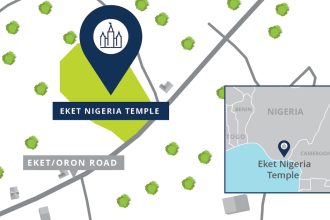In the past, many young Nigerians, including students and graduates, made a living on the streets, riding okadas to move people and goods. It was tough work—long hours, low pay, and constant danger from bad roads and police stops. Most dreamed of something better.
Now, things are changing. More young people are learning digital skills. They use phones and laptops to work online. Some write code to build websites and apps. Others design pictures or edit videos. Some help companies with social media or customer service. These jobs pay better and are safer than okada. With these digital skills, young people are using these digital skills to move abroad on a visa like Global talent visa in Uk, HB1, in USA.
The internet has made this shift possible. Many people in Nigeria now have smartphones. Free online courses teach coding, design and other skills. Some organisations offer free training in local centres. Young people watch videos on youtube to learn new things. They join online groups like discords, telegram and forums to ask questions and get help.
Artificial intelligence (AI) is also part of this change. Young people use AI tools to work faster. For example, they use AI to check their writing or make simple designs. Others use AI to help write code or find mistakes in their work. Some build chatbots that answer questions for businesses. These tools save time and help them do more work.
Many young people now work for clients outside Nigeria. They find jobs on websites like Fiver, and Upwork that link workers with companies. These jobs are called remote jobs. A person in Lagos can work for a company in London or New York. They get paid in dollars or pounds. This helps them earn more than local jobs. Some save money to start their own business. Others pay for school or help their families.
There are many stories of success. One young man learned to code from free videos on youtube and Coursera. He now builds websites for shops in Europe. A young woman started as a UI/UX. She now leads a team that makes adverts for companies in the United States. Some people teach others what they have learned. They run classes in their locality or online.
But there are still problems. Not everyone has a good phone or laptop. Some places have slow or costly internet. Power cuts make it hard to work for long hours. Some online jobs do not pay well or pay late. There are scams that trick people into working for free. Some young people do not know how to find safe and fair work.
Some organisations like NGOs are trying to help. They give free laptops or the internet to students. Others teach young people how to spot scams(CyberSecurity). They show them how to write a good CV and apply for jobs. Some groups link young people with mentors. These mentors give advice and help them grow.
The government has noticed this change. They promise to fix roads, improve power and make the internet cheaper. Some towns now have tech hubs where young people can learn and work. These hubs offer free classes, incubator for tech entrepreneur, fast internet and a safe place to work.
Parents are also changing their minds. In the past, many wanted their children to be doctors or lawyers. Now, some see that digital jobs can pay well. They help their children learn to use computers and phones.
Schools are starting to teach digital skills. Many private schools now have classes in coding, design and how to use the internet. Teachers show students how to use AI tools. They teach them how to stay safe online. Some schools have clubs where students build robots or make games.
There is a sense of hope among young people. They see that they can build a better life with digital skills. They dream of starting their own tech startup. Others want to work for big companies in other countries. Many want to help their families and give back to their towns.
Some young people use their skills to solve local problems. They build apps that help farmers sell crops. Others make websites for small shops. These projects help their communities and give them pride.
The move from street to digital work is not easy. It takes time to learn new skills. It can be hard to find good jobs at first. But many young people are willing to try. They help each other and share what they know. They use social media to find jobs and learn about new tools.
There are risks. Some worry that AI will take jobs away. Others fear that only a few people will get the best jobs. But most young people see more good than bad. They believe that digital skills will open doors.
In the next few years, more young people in Nigeria will learn digital skills. They will use AI to work smarter and faster. They will find jobs in Nigeria and other countries. Some will start their own companies. Others will teach the next group of young people.
This change is not just about money. It is about pride and hope. Young people want to show they can do more than ride a motorbike. They want to build, create and solve problems. They want to be part of a new future.
From streets to Tech, the story of Nigeria’s youth is still being written. Each day, more young people join the digital world. They face new challenges but also new chances. Their skills and hard work will shape what comes next.







